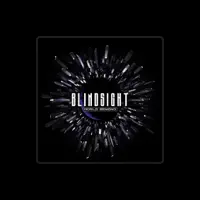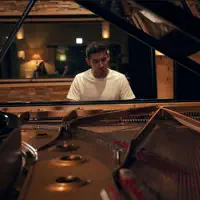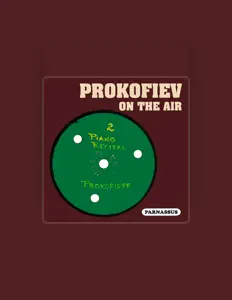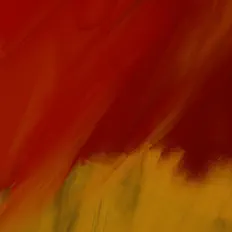
Classical
Russia
Sergei Prokofiev
Sergei Prokofievのトップソング
Sergei Prokofievの他のアルバム
Sergei Prokofievについて

出身地
Russia
誕生日
1891
ジャンル
Classical
Prokofiev’s music, like its composer, can be blunt and direct. Yet Prokofiev also had a gift for writing beguiling melodies, which, as his style matured, gained in subtlety, expression, and meaning. Born in 1891 in the rural Ukrainian estate of Sontsovka, Prokofiev’s musical talent was recognized early, and at Glazunov’s recommendation, he entered the St. Petersburg Conservatory at 13 years old. There, the budding composer/pianist developed into an enfant terrible, composing such showpieces for himself as “Suggestion diabolique,” Op. 4 No. 4 (1908, rev. 1912) and his Piano Concerto No. 1 (1912) before his graduation in 1914. After the Revolution he moved to France, building his reputation on the pugnacious style of his ballet Chout (1920). His involvement in Christian Science, starting in the mid-’20s, persuaded him to cultivate a “new simplicity,” which, as demonstrated in his film score for Lieutenant Kijé (1934), appeared to suit the Soviet Union’s new official aesthetic; Prokofiev was enticed to return to his homeland. While Peter and the Wolf (1936) and his cantata Alexander Nevsky, Op. 78 (1939) enjoyed popular success, the more anguished style of his First Violin Sonata (1938–46) and Piano Sonatas Nos 6-8 (1939–44) reflect the trauma of Stalin’s Great Terror. Prokofiev composed his Fifth Symphony during World War II, when such dark emotions were acceptable. However, his more explicitly tragic Sixth Symphony (1945–47) drew official censure. Prokofiev, in poor health, recovered his reputation with the charming yet enigmatic Seventh Symphony, which he completed shortly before his death in 1953.
Sergei Prokofievから影響を受けましたSergei ProkofievはWorld Beyond、 Unai Karam、 Alexander Demidovやその他の音楽に影響を与えてきました。
Sergei Prokofievに似た曲やアーティスト
Sergei Prokofievに似た他の音楽やアーティスト(たとえばAnatoly Vedernikov、 Dmitri Shostakovich、 Klassik Für Kinderなど)をもっと見つけましょう。























































































![Claudine Carlson, Arnold Voketaitis, St. Louis Symphony Orchestra & Leonard Slatkinの「Prokofiev: Alexander Nevsky, Op. 78 & Lieutenant Kijé Suite, Op. 60 (Version for Voice & Orchestra) [Remastered 2024]」を聴こう。 Claudine Carlson, Arnold Voketaitis, St. Louis Symphony Orchestra & Leonard Slatkinの「Prokofiev: Alexander Nevsky, Op. 78 & Lieutenant Kijé Suite, Op. 60 (Version for Voice & Orchestra) [Remastered 2024]」を聴こう。](https://is1-ssl.mzstatic.com/image/thumb/Music126/v4/2a/fd/74/2afd74a2-7182-a416-fd9a-2a3772cc4e46/747313303380.png/276x276bb.webp)










































